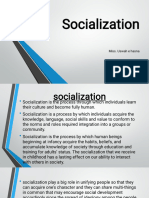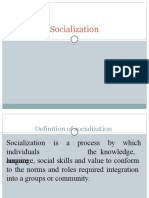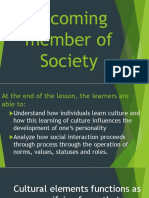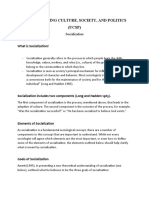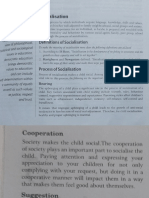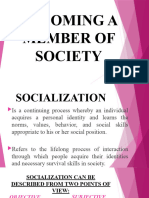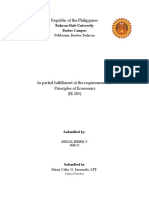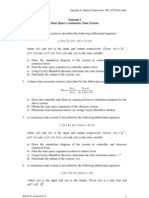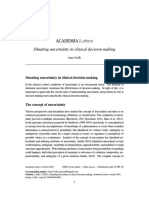0% found this document useful (0 votes)
73 views3 pagesSocialization (Part A)
The document discusses socialization, which is the process of learning social behaviors and norms. It outlines key factors in socialization like imitation and identification. It then explains how socialization is important for converting humans into social beings, contributing to personality development, and helping people learn roles and skills. Finally, it identifies the main agents of socialization as the family, schools, peer groups, and mass media.
Uploaded by
Saqlain HyderCopyright
© © All Rights Reserved
We take content rights seriously. If you suspect this is your content, claim it here.
Available Formats
Download as DOCX, PDF, TXT or read online on Scribd
0% found this document useful (0 votes)
73 views3 pagesSocialization (Part A)
The document discusses socialization, which is the process of learning social behaviors and norms. It outlines key factors in socialization like imitation and identification. It then explains how socialization is important for converting humans into social beings, contributing to personality development, and helping people learn roles and skills. Finally, it identifies the main agents of socialization as the family, schools, peer groups, and mass media.
Uploaded by
Saqlain HyderCopyright
© © All Rights Reserved
We take content rights seriously. If you suspect this is your content, claim it here.
Available Formats
Download as DOCX, PDF, TXT or read online on Scribd
/ 3
